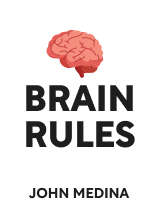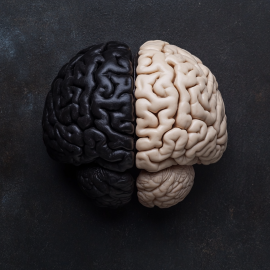

This article is an excerpt from the Shortform book guide to "Brain Rules" by John Medina. Shortform has the world's best summaries and analyses of books you should be reading.
Like this article? Sign up for a free trial here .
Do you know the science behind how memories work? How does your brain process the memories you create every day?
Dr. John Medina explains how memories work in his book Brain Rules through a process called “memory encoding.” There are two types of memory encoding (just like there are two types of memories), and each category assists in forming, storing, and retrieving memories.
Here’s the specific process behind how memories work.
How Your Brain Encodes Memories
To form memories, and therefore learn from experience, the brain goes through a complex process. Medina writes that the most important part of how memories work is encoding, which is how our brain processes and stores sensory information. Encoding happens in the first few seconds of having an experience.
When we take in new information, each of our senses processes it at the same time. For example, imagine purchasing a danish from a new bakery in your neighborhood. You’d see the display case of baked goods, you’ll hear the sounds of the customers and employees, you’ll feel the pastry you’ve been handed, and you’ll smell and taste the danish you’ve purchased. Each of these senses is processed by different areas of the brain, so all of this information is converted into electrical signals by neurons in their respective areas.
After memory encoding, the brain then stores the different pieces of information in the areas that they’ve been processed in. Instead of the memory of the bakery entering one particular spot in your brain, then, the various sensory information you’ve processed in the bakery will be dispersed all over the brain.
| What Happens When Encoding Is Disrupted? The importance of the process of how memories work can be seen when the process is disrupted—for example, when the hippocampus, the area of the brain that encodes short-term memories into long-term ones, is damaged. Hippocampus damage can occur through injury or conditions like Alzheimer’s disease. When someone’s hippocampus doesn’t function properly, that person develops anterograde amnesia, meaning they can remember very short-term memories but can’t form long-term memories. Thus, while a person with a properly functioning hippocampus would be able to remember their trip to a new bakery a week later, a person with a damaged hippocampus might only remember it for a few minutes. |
Automatic Versus Effortful Processing
Not all encoding is the same. There are two major types of encoding, automatic and effortful processing, which determine how easy or difficult it will be in terms of how the memories are working with retrieving.
Automatic processing is encoding that requires very little conscious effort, usually involving visual stimulus. For example, when you see a memorable movie, your brain will encode it automatically.
Effortful processing, on the other hand, requires conscious attention to form a memory. For example, when you study for a test, your brain uses effortful encoding. Effortful encoding can be challenging and requires numerous repetitions before you can easily remember what you learned.
Short-Term Versus Long-Term Processing
Just as there are two primary types of encoding, there are two different types of memory: working memory (or short-term memory) and long-term memory. Short-term memories are usually accurate, but long-term memories can be filled with false information. How these memories work depends on how long they’ve been stored in the brain.
Working memories are temporary memories that have been stored for immediate use. Short-term memory retrieval is straightforward: When you search for a memory, you’re able to find it and review it accurately.
Long-term memories are a small number of memories that are stored for an extended period of time. Long-term memory retrieval is more complicated. We likely remember bits and pieces of the long-past event or information, and then fill in the gaps based on what they think makes sense. This can lead to a memory that’s filled with false information. Even if a memory is important to you, it can become difficult to remember accurately if you don’t think or talk about it often.
“Knowledge Collapse” Occurs Before Creating Long-Term Memories
Medina describes the difficulties of how long-term memories work. Barbara Oakley expands on this in A Mind for Numbers, where she discusses one particular pitfall of long-term memory.
This pitfall is called knowledge collapse. As you learn more about a subject, your neurons will sometimes have to rearrange themselves in order to store the new information. This can temporarily wreak havoc on retrieving your long-term memories about the subject: As restructuring occurs, it becomes suddenly difficult to remember information you thought you solidly knew.
However, this is a temporary problem, as this restructuring ultimately helps you learn new and complex information. If you experience knowledge collapse, instead of stressing and giving up, keep up with your learning until your brain has integrated the new information.

———End of Preview———
Like what you just read? Read the rest of the world's best book summary and analysis of John Medina's "Brain Rules" at Shortform .
Here's what you'll find in our full Brain Rules summary :
- An explanation of how the brain works in a simple and accessible way
- The 12 rules that help fulfill the core functions of the brain
- How to improve your thinking and learning abilities






